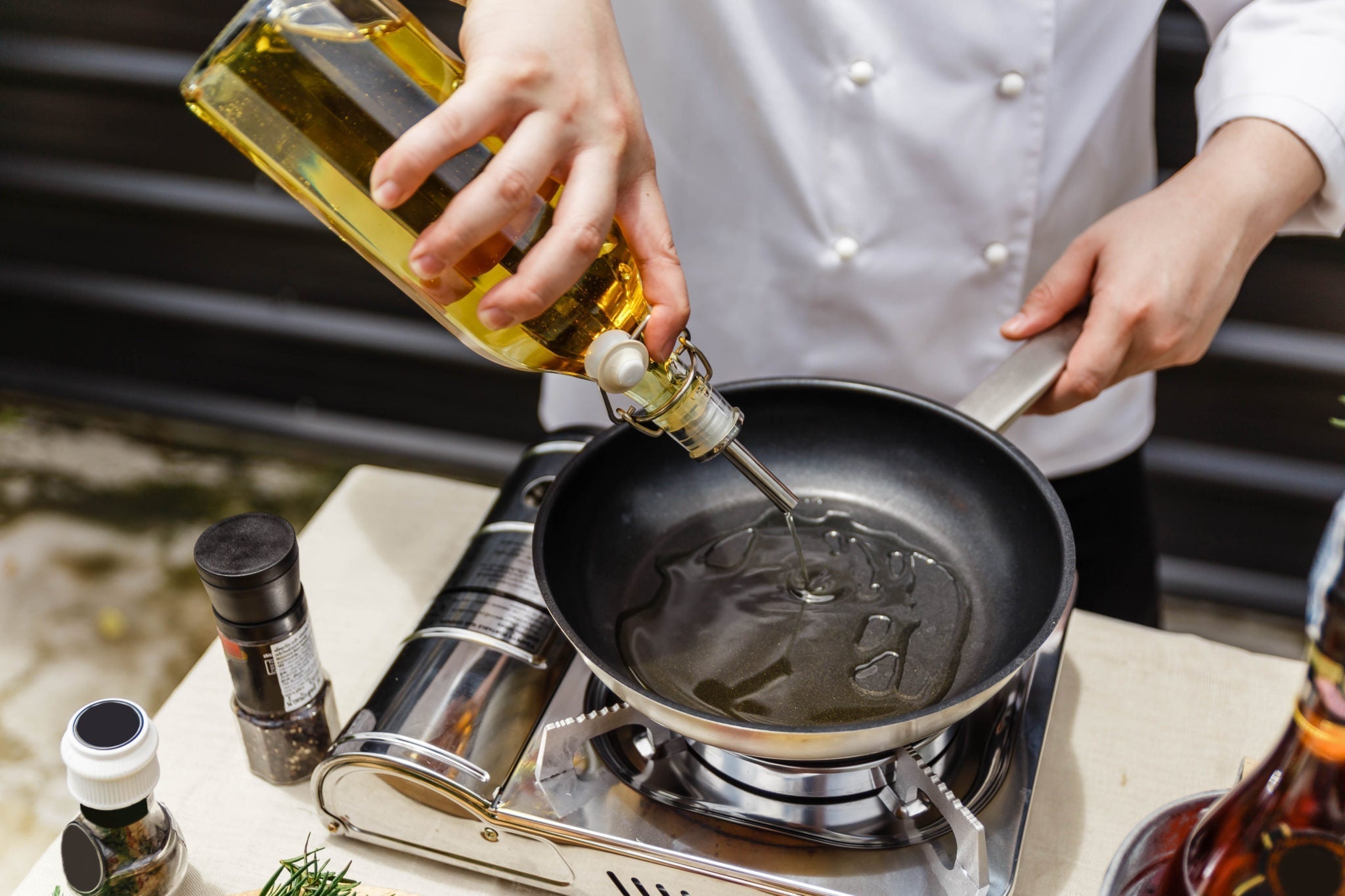If you've ever found yourself halfway through a baking recipe only to realize you're out of vegetable oil, you might wonder, 'can you use olive oil instead of vegetable oil when baking?' This is a common question asked by kitchen enthusiasts and professionals alike, grappling with the substitution dilemma. Given that olive oil is a pantry staple in many households, it's worth understanding whether it can adequately replace vegetable oil in baking.

The Science Behind Olive Oil and Vegetable Oil
To determine if you can use olive oil instead of vegetable oil when baking, it's essential to understand the fundamental differences between these two oils.
Composition
Vegetable oil tends to have a neutral flavor, making it versatile for various recipes. It's often derived from a blend of different plant-based oils such as soybean, corn, or canola.
Olive oil, on the other hand, is made from pressed olives and has a distinct flavor that ranges from mildly fruity to robustly peppery. Extra virgin olive oil, which is the least processed form, contains more nutrients and antioxidants compared to vegetable oil.
Smoke Point
The smoke point of an oil is the temperature at which it starts to smoke and break down, releasing free radicals and unpleasant flavors. Vegetable oil usually has a higher smoke point, around 400-450F (204-232C), making it suitable for high-heat cooking and baking.
Olive oil has a lower smoke point, around 350-410F (177-210C), depending on whether it is extra virgin or regular olive oil. For baking purposes, this is usually sufficient, unless the recipe specifically requires high-heat cooking.

Which Recipes Work Best with Olive Oil?
If you're considering whether you can use olive oil instead of vegetable oil when baking, it helps to know in which recipes this substitution works best.
Cakes and Muffins
Olive oil can be an excellent substitute for vegetable oil in moist, dense cakes and muffins. The oil adds a subtle, rich flavor that complements chocolate, spices, and fruit-based recipes.
Bread
Olive oil is highly suitable for baking bread, especially when you're aiming for a Mediterranean flair. It pairs wonderfully with herbs, garlic, and sun-dried tomatoes, adding both depth and moisture to the bread.
Cookies
While it's possible to use olive oil in cookies, the pronounced flavor might not be to everyone's liking. For buttery or plain cookies, the olive oil taste can be more noticeable and may alter the overall flavor profile of the cookies.

Benefits of Using Olive Oil in Baking
Beyond its distinct flavor, there are several compelling reasons to use olive oil instead of vegetable oil when baking.
Health Advantages
Olive oil is packed with monounsaturated fats, which are heart-healthy and can help reduce bad cholesterol levels. It also contains antioxidants and anti-inflammatory properties, contributing to overall wellness.
Enhanced Flavor
The unique flavor of olive oil can elevate baked goods, adding a rich and complex taste that vegetable oil can't provide. This can make a noticeable difference in recipes like chocolate cake or carrot muffins.
Additionally, the flavor of olive oil can deepen and become more nuanced when baked, offering a gourmet twist to even simple recipes.

How to Substitute Olive Oil for Vegetable Oil
If you decide to use olive oil instead of vegetable oil when baking, it's crucial to follow some guidelines to ensure the best results.
Quantity
Generally, you can substitute olive oil for vegetable oil on a one-to-one basis. If your recipe calls for 1 cup of vegetable oil, you can use 1 cup of olive oil.
Flavor Adjustments
Since olive oil has a strong flavor, you might want to start with a mild or light olive oil, especially if you're new to the substitution. This will help you gauge the impact on your recipe before using a more robust, extra virgin olive oil.
Experimentation
Don't be afraid to experiment with using olive oil in different recipes. Over time, you'll get a sense of how the substitution affects the taste and texture of your baked goods. Keep a journal or notes on your experiments to refine your technique.
FAQs
1. Can I use olive oil in place of vegetable oil for frying?
While you can use olive oil for light frying, its lower smoke point makes it less suitable for high-temperature frying compared to vegetable oil.
2. Does olive oil affect the shelf life of baked goods?
Olive oil may add a slightly longer shelf life to baked goods due to its natural antioxidants, which help prevent rancidity.
3. Is the flavor of olive oil noticeable in all baking recipes?
The flavor can be noticeable, especially in recipes that are lighter in flavor. However, for rich, dense recipes, the olive oil flavor can blend well without overpowering the other ingredients.
Interested in learning more about the benefits of olive oil in baking? Check out this informative article by Olive Oil Times.
As an Amazon Associate, I earn from qualifying purchases.






Leave a comment
This site is protected by hCaptcha and the hCaptcha Privacy Policy and Terms of Service apply.